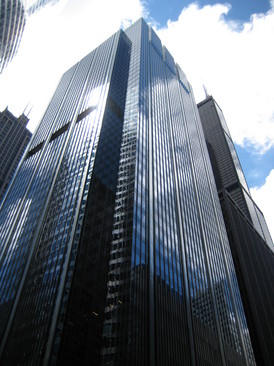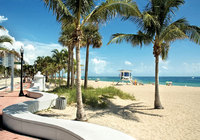 Back in September of 2011, we discussed the impact of the Third District Court of Appeal’s ruling mandating that developers must keep pre-construction deposits in separate escrow accounts.
Back in September of 2011, we discussed the impact of the Third District Court of Appeal’s ruling mandating that developers must keep pre-construction deposits in separate escrow accounts.
However, the Florida Supreme Court has since reversed that ruling. In so doing, the Florida Supreme Court concluded that the deposits could be kept in one account so long as the accounting was done separately and the monies were not commingled with the developer’s own money.
The Florida Supreme Court’s ruling clears up an ambiguity regarding Fla. Stat. Sec. 718.202 and the requirements set forth in that statute governing the maintenance of pre-construction deposits. Simply put, the ruling is a significant victory for developers because developers are now free to keep money from condo buyers in one account so long as that account is not commingled with the developer’s money and proper accounting is kept.
This is a significant ruling that will no doubt have an impact on both ongoing development as well as many South Florida legal battles that continue to rage on in South Florida’s courts.
Since the real estate market went bust back in 2007, developers and pre-construction contract buyers of condominiums (many of which were never built) have flooded South Florida’s court system with lawsuits. Many of those lawsuits focus on the buyer’s effort to have their deposit returned. In most cases, those deposits were either 10 or 20 percent of the purchase price.
Florida Statute Sec. 718.202 protects condo buyers’ deposits of up to 10% of the purchase price and forbids developers from using that money during construction. Failure to adhere to the statute may result in 3rd a degree felony against the developer. However, the developer is permitted use funds in excess of 10% of the purchase price for construction purposes. But Fla. Stat. Sec. 718.202 imposes certain requirements on those funds too.
Thus, an ambiguity arose in the interpretation of that statute. The legal question became whether or not the monies that could be used for construction purposes were to be held in the same escrow account as the initial 10% deposit, or whether those funds needed to be placed in their own separate escrow account
—–
EXTENDED BODY:
The Third District Court of Appeal’s ruling was favorable for buyers because the Third District Court of Appeal concluded that two separate accounts needed to be established, and that the funds could not be commingled in one account. Failure to establish the second account would result in voiding the contract and returning all monies deposited to the buyer. Such a ruling was no doubt a favorable ruling for buyers.
In 2010, Florida’s legislature attempted to clarify this ambiguity in the then existing law by revising the applicable statutes and stating that one account could be maintained, and also stating that if one account was to be used that separate accounting would be required. Despite that clarification, however, the Third District Court of Appeal in 2011 still ruled that two accounts were required. As such, an appeal was taken to the Florida Supreme Court to help further resolve these ambiguities.
The Florida Supreme Court’s analysis noted that the statute was, in fact, ambiguous in terms of whether or not two separate accounts were required to hold the escrow deposits. Given that ambiguity, the Florida Supreme Court next looked at the statute’s legislative history to help resolve the ambiguity. The Florida Supreme Court concluded that the legislative history was not helpful in resolving the ambiguity.
However, the Florida Supreme Court noted that the statute did carry criminal penalties in the event that developers failed to follow the escrow requirements set forth in Fla. Stat. Sec. 718.202. Given that criminal component, the Florida Supreme Court concluded that the statutory rule of lenity applied. The rule of lenity states that if a statute is subject to competing reasonable interpretations then the statute shall be construed most favorably to the accused.
Consequently, since the statute at issue herein was subject to competing, but reasonable, interpretations, the Florida Supreme Court applied the rule of lenity to resolve the matter. The rule of lenity mandated that the statute be interpreted most favorably to developers so as to prevent developers from being subject to criminal penalties.
Thus, developers are permitted to keep all pre-construction deposits in one escrow account so long as the funds are not commingled and separate accounting records are maintained.





